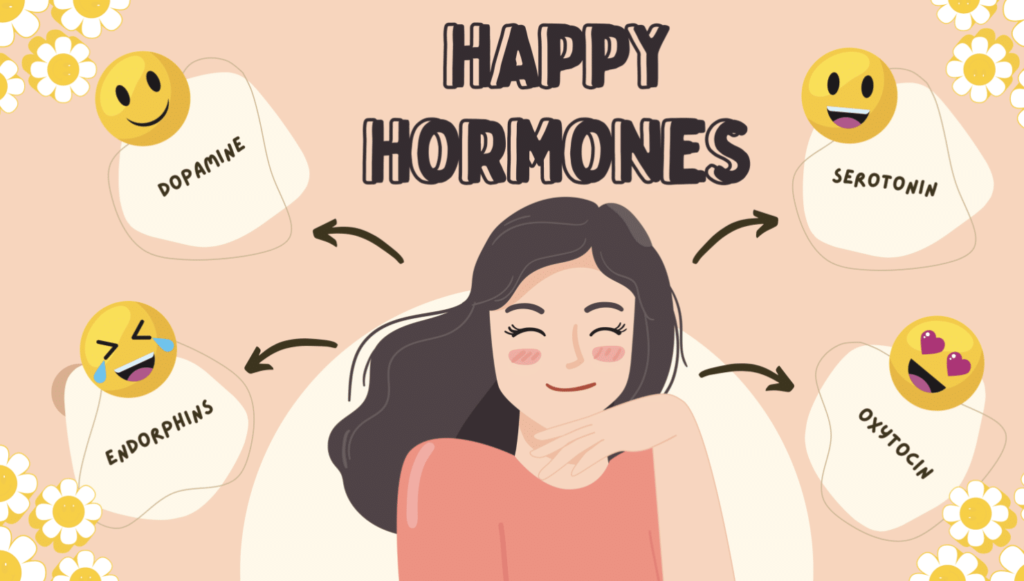The Happy Hormones: A Chemical Cocktail for Well-being
The Power of Neurotransmitters
The human experience is a tapestry woven with threads of joy, contentment, and even bliss. While these emotions may seem intangible, they are intricately linked to a fascinating quartet of neurotransmitters often referred to as “happy hormones.” These chemical messengers, including dopamine, serotonin, oxytocin, and endorphins, play a pivotal role in regulating mood, motivation, and overall well-being.

The Role of Dopamine: The Reward Seeker
Dopamine, often dubbed the “reward hormone,” acts as a powerful motivator. It surges when we achieve goals, experience pleasure, or anticipate something rewarding. This surge creates a sense of satisfaction and encourages us to repeat behaviors that lead to those positive outcomes.
Serotonin: The Stability Guardian
Serotonin, on the other hand, is associated with feelings of stability, calmness, and happiness. It plays a crucial role in regulating mood, sleep, appetite, and digestion. Adequate levels of serotonin are essential for maintaining emotional balance and preventing conditions like depression.
Oxytocin: The Love Hormone
Oxytocin, often referred to as the “love hormone,” is released during social bonding activities such as hugging, cuddling, and even eye contact. It fosters feelings of trust, empathy, and connection, strengthening social bonds and promoting a sense of belonging.
Endorphins: The Natural Pain Relievers
Endorphins are the body’s natural painkillers. Released during exercise, laughter, and even spicy food consumption, they produce feelings of euphoria and reduce stress and anxiety. This “runner’s high” is a classic example of endorphins in action.
Boosting Happy Hormones for Well-being
Understanding the role of these happy hormones can empower individuals to make conscious choices that enhance their well-being. Engaging in activities that naturally boost these neurotransmitters, such as exercise, meditation, social interaction, and pursuing hobbies, can significantly improve mood, reduce stress, and cultivate a greater sense of happiness and fulfillment.
A Holistic Approach to Happiness
While the concept of “happy hormones” provides a valuable framework for understanding well-being, it’s important to remember that happiness is a multifaceted experience. It involves a complex interplay of biological, psychological, and social factors. Cultivating a healthy lifestyle, nurturing meaningful relationships, and practicing gratitude are all crucial components of a truly happy and fulfilling life.










